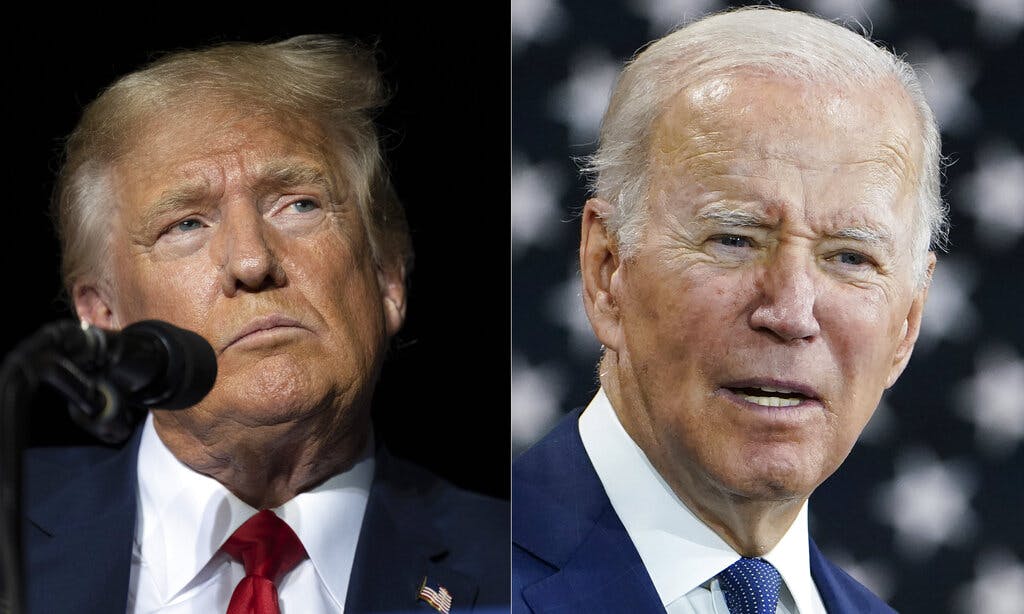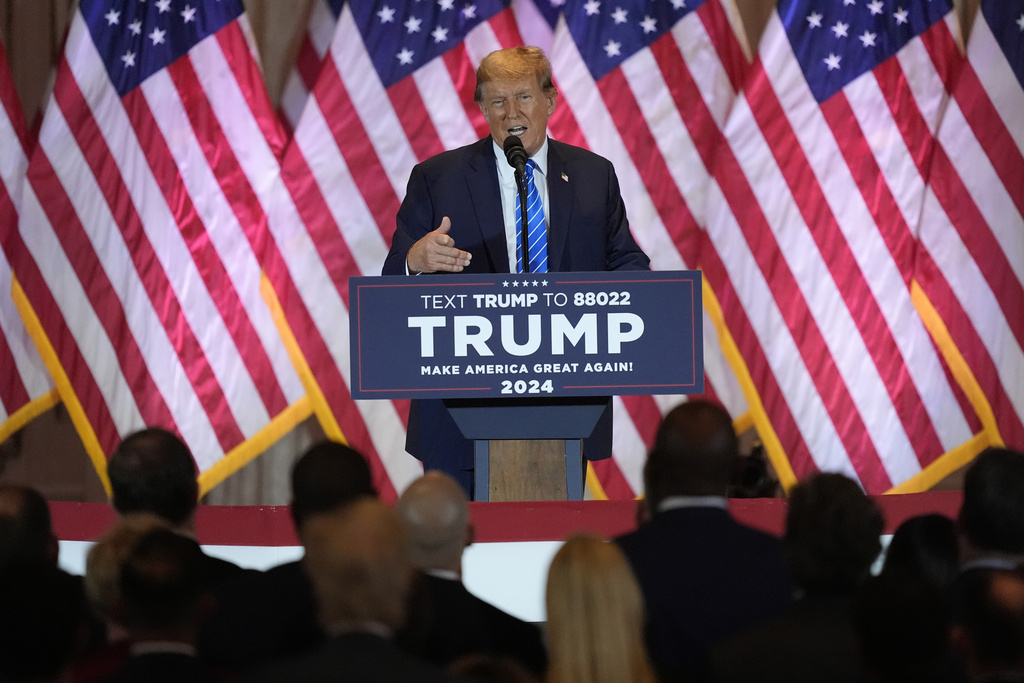Super Tuesday Sets the Stage for a Presidential Campaign Rematch — With Surprises in Store
Now that the sun has set on Super Tuesday, America faces a a general election lineup that most didn’t want.

Presidents Biden and Trump are basking in the glow of the Super Tuesday map last night. Having secured more than half the delegates needed to capture their nominations, they’re pivoting to a campaign full of déjà vu.
Ambassador Nikki Haley denied Mr. Trump a sweep by winning Vermont, but will reportedly suspend her campaign without endorsing the GOP frontrunner. That decision could reflect the fact that she wouldn’t have enjoyed such favorable terrain in upcoming primary contests. The heavily Democratic Green Mountain State lacks party registration so anyone can vote in its primaries.
Mr. Biden failed to pitch a shutout, too, losing American Samoa to a businessman, Jason Palmer, 51 votes to 40. These upsets could be the last surprises of the primaries, with Mr. Trump’s running mate the remaining big question.
Mr. Biden, in his victory statement, said Mr. Trump “is driven by grievance and grift, focused on his own revenge and retribution” and accused him of being “determined to destroy our democracy.”
The choice, Mr. Biden said, is between him and allowing Mr. Trump to “drag us backwards into the chaos, division, and darkness that defined his term in office.” Expect something similar at tomorrow’s State of the Union address and then through Election Day.
Mr. Trump, appearing in person, focused more on policy and “unity” than personality. Calling Mr. Biden “the worst president in the history of our country,” he laid at his opponent’s feet inflation, the Ukraine invasion, Iran’s support for Hamas, energy costs, and the crisis at the border.

“All of the problems that you have today,” Mr. Trump said, “I don’t think that you would have any of them” had he been reelected. “You’d only have success, and that’s what’s ultimately going to unify this country.” The optimistic note stood in stark contrast to the picture painted by Mr. Biden.
March 12 is the earliest Mr. Trump can clinch his nomination. For Mr. Biden, it’s March 19. Once Super Tuesday’s 15 states decided, the window for a new face is closed.
Age was expected to be an Achilles’ heel for Mr. Trump, 77, and Mr. Biden, 81. Monday’s AP poll found that 63 percent of American adults are “not very or not at all confident in Biden’s mental capability to serve” and 57 percent said the same of Mr. Trump.
When Mr. Palmer entered the race on November 10, he tweeted that he was doing so “to pass the torch to a new generation.” Mrs. Haley also focused on age, lambasting “two candidates in their 80s” and calling for federal officeholders over 75 to take competency tests.
Age played a role in majorities opposing this 2020 sequel. A University of Massachusetts-Amherst poll released last month found 53 percent of respondents preferred someone other than Mr. Trump and 57 percent other than Mr. Biden.
Nevertheless, Messrs. Biden and Trump enjoyed something like the three-to-one advantage given to defenders in wargames. Both ran as incumbents and no sitting president or previous nominee has been denied renomination since the advent of the primary system a century ago.
The last repeat of an election occurred in 1956. Democrats nominated Governor Adlai Stevenson again to take on President Eisenhower, only to see Ike expand on his 1952 landslide. The 2020 race, by contrast, was, according to NPR, settled by 44,000 votes in Georgia, Arizona, and Wisconsin.
The prospect that Mr. Trump could join President Cleveland to serve non-consecutive terms is stronger now than ever. Although more of a footnote for historians than the stuff that moves voters, 2024 mirrors 1892 in important ways.
A Populist, Congressman James Weaver, joined the race with Cleveland. A former Republican, Weaver drew support from the incumbent, President Harrison, who had won four years earlier by a single state in the Electoral College but lost the popular vote.
January’s Harvard-Harris poll found that when independents Robert F. Kennedy Jr., Cornel West, and Jill Stein of the Green Party were options in a hypothetical election, Mr. Trump defeated Mr. Biden by 11 points — more than enough to ensure a Cleveland-like comeback.
With the sun having set on Super Tuesday, America faces a rematch most didn’t want, but while the big names are the same, what the results will be when the sun rises on the first Wednesday in November is still anybody’s guess.

